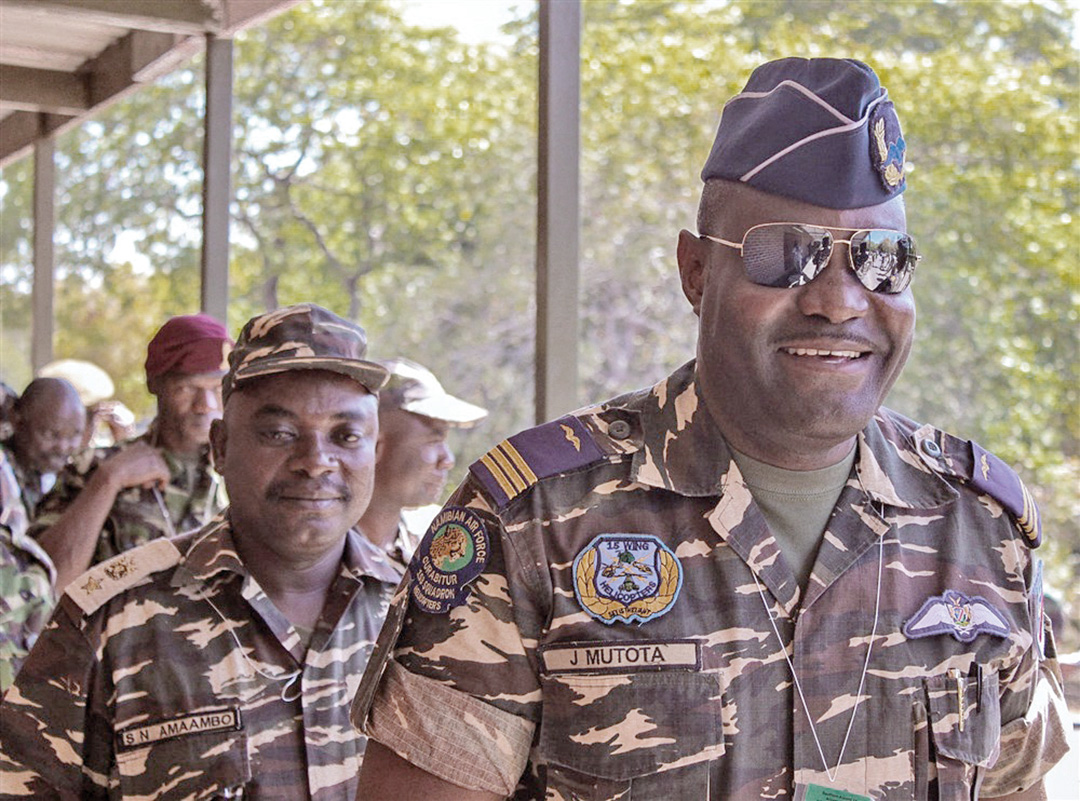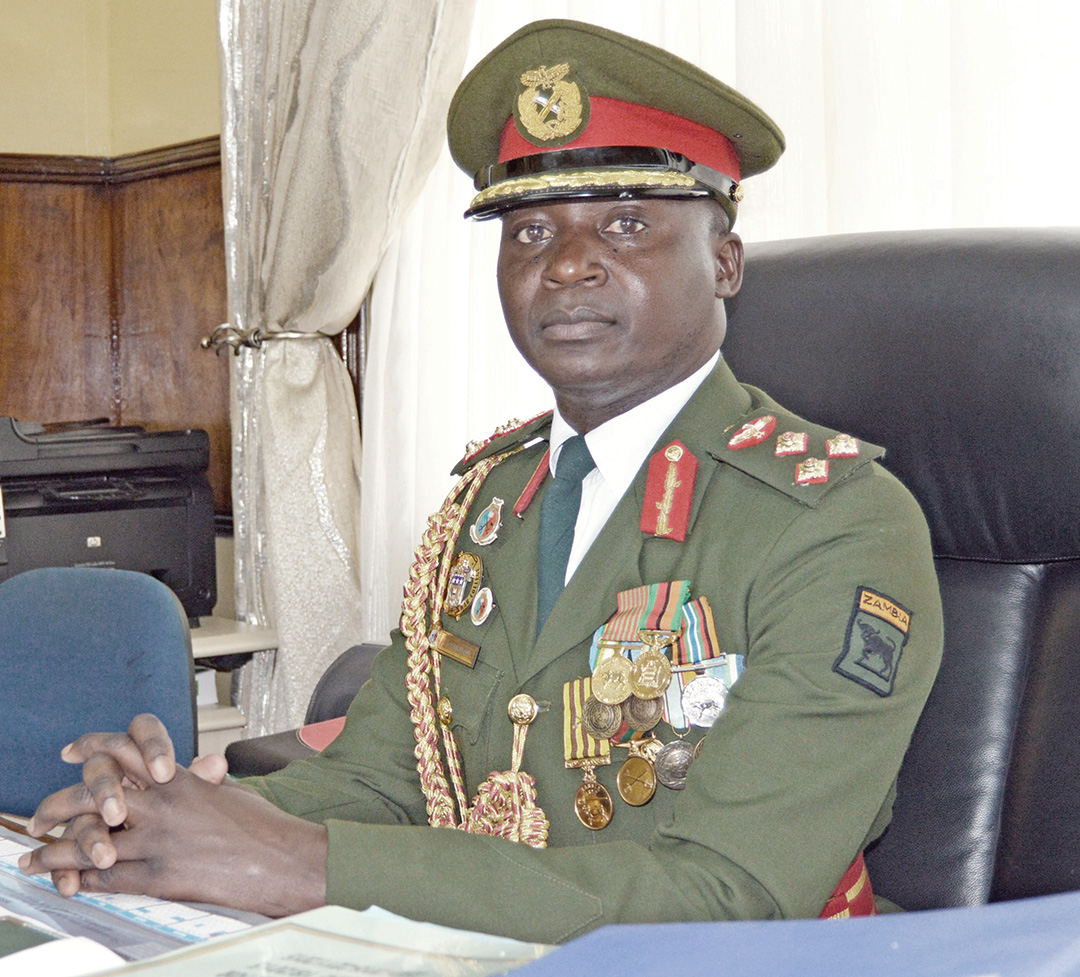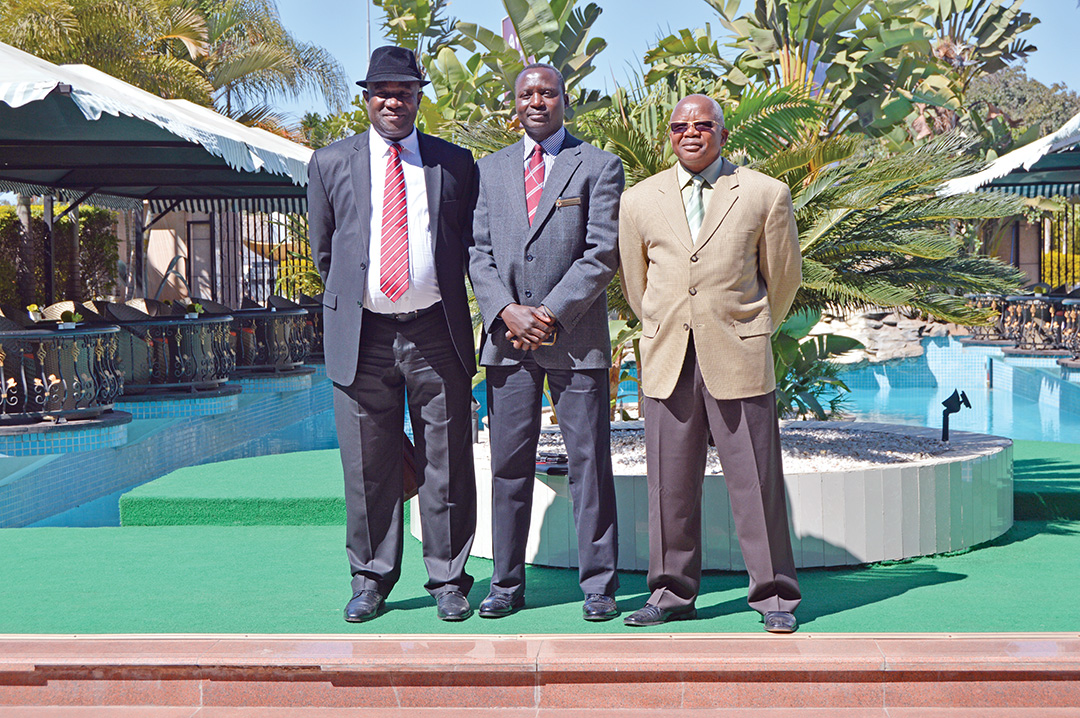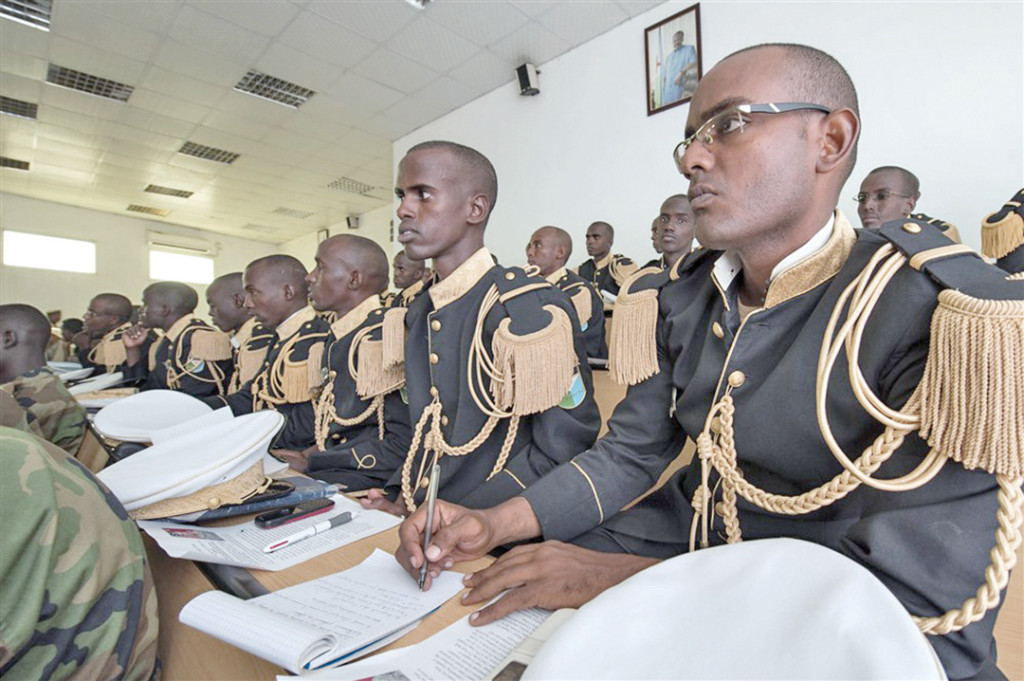The African Conference of Commandants encourages militaries to learn from each other
Dramatic changes in society used to be single events. The end of World War II. The collapse of the Soviet Union. The global financial crisis. Writer Joshua Cooper Ramo summed up the events of the 21st century as “an avalanche of ceaseless change.”
As is almost always the case, the military is called on to help manage the changes. Now, more than ever, a well-trained military is essential. That’s where African nation staff colleges, also known as war colleges, come in. They train army officers in the science of war and crisis management.
Typically, officer training begins with cadet school, or officers’ candidate school. But too often officer training ends at graduation. The staff colleges take that basic military training and expand it, going beyond fundamental combat skills. As writer Milan Vego has said, a professional military education “should encourage the development of initiative, flexibility, decisiveness, and willingness to take responsibility.”
Africa’s staff colleges have a long tradition of exchanging students, instructors and administrators. Historically, such exchanges generally were limited to subregions. Representatives of staff colleges aspired to do more and formed the African Conference of Commandants (ACoC) in South Africa in November 2007.
Conference organizers studied similar organizations such as the North American Treaty Organization’s Conference of Commandants, the NATO Defense College and the Africa Center for Strategic Studies in the United States.

U.S. AFRICA COMMAND
The conference has grown steadily. Representatives from nine staff colleges attended the first meeting in 2007 in South Africa, with 11 the next year in Ghana. The third meeting, hosted by Egypt in 2009, was attended by representatives of 18 of Africa’s 25 staff colleges. The annual meetings also have been hosted by Botswana, Ethiopia, Nigeria, Uganda and Zambia.
The current roster of active members includes military representatives from Botswana, Cameroon, Côte d’Ivoire, Egypt, Ghana, Kenya, Libya, Malawi, Namibia, Nigeria, South Africa, Uganda and Zambia. Conference membership is evolving and can include representatives from nongovernmental organizations. Some countries, such as Egypt and Libya, have participated consistently in the conference, despite political upheavals.

AFRICAN CONFERENCE OF COMMANDANTS
Bob Janssen, secretary of the ACoC and a retired colonel who served in the South African National Defence Force, said that at the 2015 planning meeting, topics included operational research, war simulations, developing curriculums, critical thinking, scenarios, future methodologies and cost-benefit analysis.
“ACoC believes that highly professional officers can provide the necessary critical mass that inspires societies to respect societal values and contribute to the development of a culture of high moral and ethical standards,” Janssen wrote. “The development of an ethos of excellence in a nation’s officer corps will result in a better quality of military peace missions, which is in the interests of all stakeholders. The niche value of ACoC is in the diversity of the many African nations, cultures and various military backgrounds they represent, which they can share and learn from.”
At the core of any staff college’s curriculum are basic military principles, including:
- National defense structures
- Roles and missions of all services
- Joint operations and warfare
- Military leadership
- Regional knowledge and studies
- Military history
- Strategy
Modern staff colleges include training in conventional war, peace support operations, the handling of internal problems, and, increasingly among African nations, the use of the military in dealing with problems produced by environmental disasters.
In addition to those military principles, the ACoC has specific objectives that include:
- Contributing to African security by developing military training and education.
- Improving the understanding and coordination among Africa’s staff colleges to develop the African Standby Force (ASF).
- Developing cooperation among the colleges by improving benchmarking, curriculum best practices, academic accreditations and exchange programs.
- The ASF is of particular interest to the conference and was a focal point during the 2007 charter meeting. It continues to be an important piece of the conference’s ongoing business. The Uganda Joint Command and Staff College, for example, offers peace support operation training, specifically taking into account the ASF’s priority needs.
TEACHING THINKING
Africa’s militaries in the 21st century are dealing with asymmetric warfare more than conventional fighting. This type of warfare and enemy requires new thinking and training. In their book, Transforming Strategic Leader Education for the 21st Century, Jeffrey McCausland and Gregg Martin said a modern military education teaches disciplined thinking and problem-solving.
“Education has more to do with how to think about problems and how to deal with those things that may not lend themselves to outright solutions,” they wrote. “It is a matter of intellect, thought, indirect leadership, advice and consensus-building.”
Maren Leed and David Sokolow, writing in their book, The Ingenuity Gap: Officer Management for the 21st Century, say the job of modern officers is “part counter-terrorism, part counter-insurgency, and part stability and support activities.”
“This diversity, while not unprecedented, has been relatively sudden in its onset and has taken place within a compressed time period,” Leed and Sokolow wrote. They said that officers are going to have to be trained in new, advanced ways.
“First, the responsibilities of junior officers will continue to expand beyond the bounds of their traditional foundational skill sets. Second, officers at all ranks will increasingly confront wicked or ill-structured problems, confounded by incomplete information and with such a vast array of implications that traditional decision-making models will no longer apply.”
Experienced military educators say that a one-size-fits-all technique for educating officers probably doesn’t exist anymore, with different staff colleges needing different courses at different times. Certainly the current state of conflict in Africa requires an increased emphasis on dealing with asymmetric warfare. Wendell C. King of the U.S. Command and General Staff College said that anyone designing a staff college training program must ask three basic questions:
- What is it that graduates must be able to do in the performance of their duties as field grade officers?
- How do you design and manage a curriculum to best prepare young military leaders, knowing that you really have no idea what they will be asked to do in the future?
- How do you determine whether students have accomplished the objectives of the training?
In an ACoC conference report, King said that unlike a civilian university, change is a constant in military colleges. “The operational environment is changing and we need to adjust our learning outcomes to anticipate this change.”
When a school decides that it is not reaching its teaching goals, King said, it needs to change its curriculum, change its teaching methods, or provide additional faculty development.
In a report after the sixth ACoC annual meeting, retired Nigerian Air Vice Marshal M.N. Umaru said officers must study strategy early in their military careers and continue to study it at the staff college level. But staff college training must expand to include national security strategy and national military strategy. He also noted that advanced military training must emphasize the effect of technology and global developments.
“Not only technology, but cyber warfare is a key threat today,” he reported. “People have to be trained and educated in defense against any attack on a cyber security infrastructure. The military must champion the cause of technological development and its impact on national security.”

A REGIONAL APPROACH
The ACoC has established a foundation for collaboration and cooperation, but the member staff colleges have limited time, resources and manpower. ACoC members have suggested that a regional approach could overcome some of these issues. There is some precedent for such cooperation, such as Kenya and Uganda working together through student exchange programs. The Uganda Joint Command and Staff College is typical of the schools in that it trains students from the 10 Eastern African Security Force member nations, as well as students from other African Union countries.
The conference also has discussed broadening its membership to include higher and lower institutions. At least six countries have such institutions that do not participate in the conference. Adding the institutions could mean career-long officer development.
The conference has an ongoing interest in a common computer network for sharing training resources. Computer networking plays a key role in the annual Combined Joint African Exercise conducted by the Southern African Development Community on behalf of the ACoC and the African Union. Janssen said in his 2015 report that the exercise is one of the ways to develop cooperation among the African colleges, along with benchmarking, curriculum best practices, staff exchange programs and academic accreditation.
“The development of the military professional is a process involving lifelong learning and continuous growth,” Janssen wrote. “ACoC’s intent is to hone the skills of the select few who display the quality of leadership that would contribute to a safer, more stable and prosperous Africa.”

